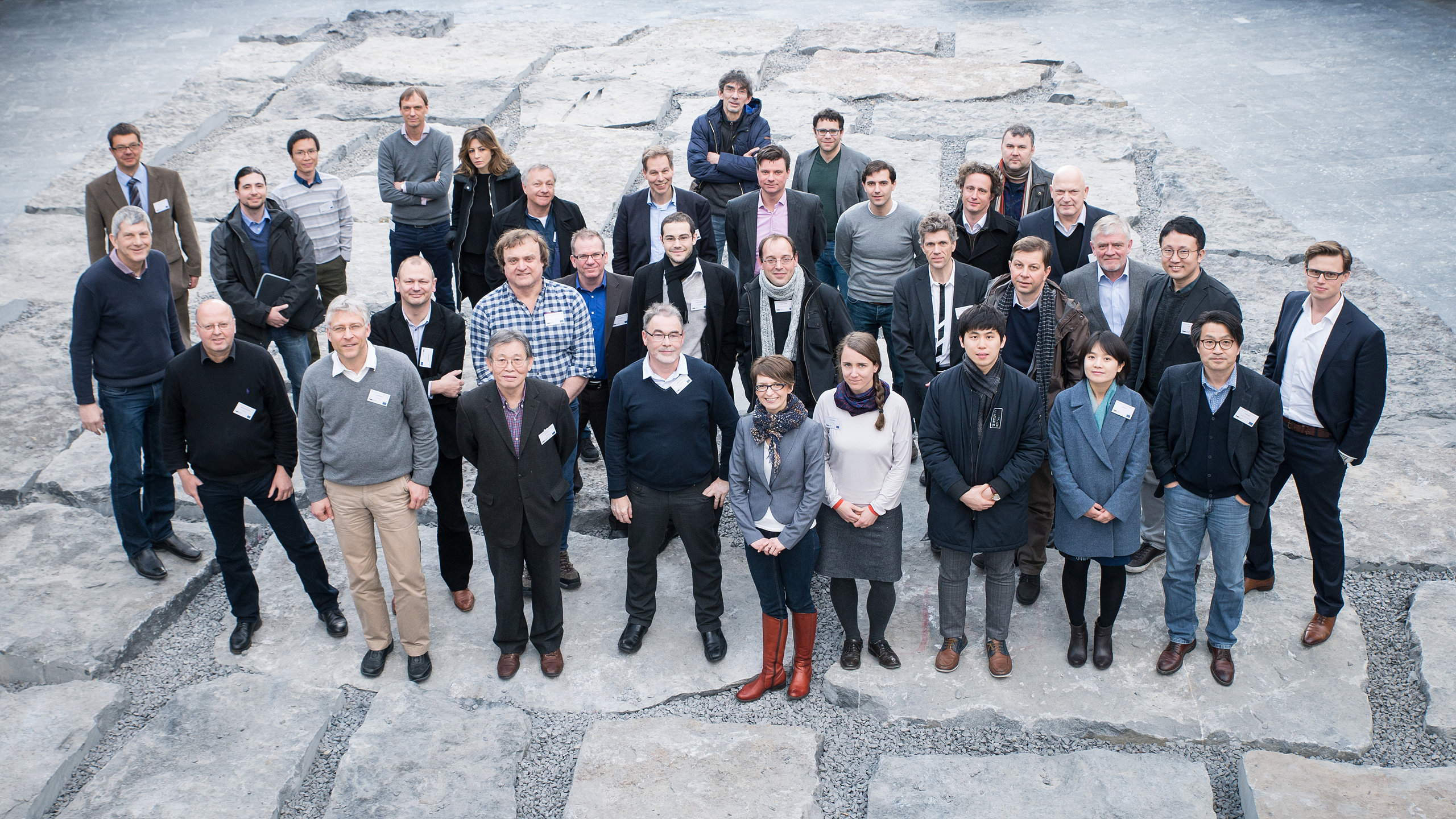Partners
DESTRESS is a Horizon 2020-supported programme and brings together an international consortium comprising 16 partner institutions from six countries in Europe as well as South Korea. It includes major research entities that are active in geothermal research worldwide such as GFZ in Germany, ETH Zurich in Switzerland, TNO in the Netherlands and KICT in South Korea as well as universities with specialist expertise such as the University of Glasgow in the UK, TU Delft in the Netherlands, the University of Strasbourg in France and Seoul National University in South Korea.
Most of these participants have been leading players in Europe’s largest EGS projects – projects that will be instrumental in applying the innovative treatments in relevant environments such as Soultz-sous-Forêts, Basel and Groß Schönebeck. This expertise is complemented by institutions involved in high-level consultancy for the hydrocarbon industry.
In addition, the consortium includes geothermal industry companies that deploy or operate geothermal sites, produce geothermal electricity and provide heat in Europe and South Korea, namely EnBW and GTN in Germany, ESG in France, GES in Switzerland, GEOTERMA in Lithuania and NEXGEO in South Korea.
The project consortium as a whole ensures close cooperation, continuous exchange of lessons learnt and knowledge transfer between research and industry groups, as well as between local, national and international stakeholders. The consortium intends to forge strong links with the international geothermal community through a Stakeholder Board, which plans to continue geothermal deployment using the DESTRESS findings.
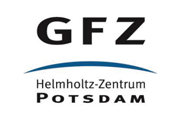
|
GFZ is the national German Research Centre for Earth Sciences, which combines all solid earth science fields including geodesy, geology, geophysics, mineralogy and geochemistry in a multidisciplinary scientific and technical environment. The International Centre for Geothermal Research (ICGR) focuses its research on the environment-friendly and economically sustainable utilization of geothermal energy for district heating and electrical power generation. Special emphasis has been laid on a concept addressing the generation or engineering of geothermal reservoirs to meet the requirements of sustained fluid-flow rates in various geological settings. The ICGR has great experience in European research projects both, as coordinator (FP7: GEISER; FP6: I-GET) and major participant (IMAGE, ENGINE, HITI, LOW-BIN). Besides ICGR, several GFZ sections will contribute relevant exploration and seismic risk assessment expertise to the project. |
|---|---|
| Tasks |
|
| Key Personnel | Prof. Ernst Huenges |
| Contact | Helmholtz Zentrum Potsdam |
| Website |

|
Energie Baden-Württemberg (EnBW) is one of the largest energy companies in Germany and Europe. Major business segments are Sales, Grids, Renewable Energies, Generation and Trading. EnBW has some 5.5 million customers and 20 000 employees. The annual revenue was amounted to more than € 21 billion in 2014. The total installed capacity is 12 500 MW electricity including 1.1 MW based on renewable energy. EnBW operates in close cooperation with partners two geothermal power plants (Bruchsal/Germany and Soultz-sous-Forêts/France). |
|---|---|
| Tasks |
|
| Key Personnel | Dr. Thomas Kölbel |
| Contact | Energie Baden-Württemberg AG (EnBW) |
| Website |

|
és-Géothermie is a subsidiary of the ES Group, hold by EDF. Its expertise and skills developed with the Soultz EGS pilot project. A part of the team was involved in different steps of the project, from reservoir studies to power plant construction and operation. Today, the company plays a major role in the first industrial EGS project: the ECOGI geothermal doublet in Rittershoffen (France), designed to produce heat at high temperature for industrial processes. ESG provides the following services:
|
|---|---|
| Tasks |
|
| Key Personnel | Albert Genter |
| Contact | és-Géothermie |
| Website |

|
The University of Glasgow (UoG) has an extremely distinguished pedigree in energy research, having been the workplace of such luminaries as James Watt, Lord Kelvin, William Rankine and Joseph Black – the work of all of whom remains highly relevant to the present-day focus of energy research at UoG on thermal energy. Since 2012 UoG has become the UK’s leading centre of excellence in geothermal research, with six permanent staff members supporting a thriving team of PhD students and postdocs, active in projects spanning the entire geothermal energy cycle (and all enthalpy levels), from early-stage exploration and reservoir characterization, through borehole construction and operation, to heat and electrical power delivery systems. The energy research team at UoG is led by the School of Engineering, but includes significant inputs also from staff in Earth Sciences, Mathematics and Statistics, Physics, Chemistry and Economics. The closely-allied Scottish Universities Environmental Research Centre (SUERC) is one of the world’s leading centres of excellence in isotope geoscience, with long-standing prowess in the unraveling of isotope systematics in low- to high-enthalpy geothermal systems, both natural and (increasingly) anthropogenic. The UoG team also works extensively on related areas of geo-energy, such as unconventional gas development and carbon capture and storage, from which relevant insights into reservoir geodynamics and induced seismicity can be readily transferred to DESTRESS. |
|---|---|
| Tasks |
|
| Key Personnel | Paul Younger |
| Contact | University of Glasgow |
| Website |

|
Geo-Energie Suisse AG (GES) was founded in 2010 and recognized as the Swiss Centre of Competence for Deep Geothermal Energy for power and heat production. Instead of each utility company having an inhouse geothermal expert group and owning projects, they share, through GES, the resources, risks and the costs for the development of deep geothermal energy production. Geo-Energie Suisse AG is based in Zürich and employs six specialists from the field of geology, geophysics, environmental and drilling engineering. Geo-Energie Suisse has strong partnerships and share ongoing development projects with the Swiss federal institute of technology in Zürich (ETH Zürich) and the CREGE, the geothermal laboratory of the University of Neuchâtel. GES is also closely associated to SCCER-SoE, the Swiss Competence Centre on Supply of Electricity that develops fundamental research and innovative solutions in the domains of geo-energies and hydro-power. Because hydrothermal resources for electricity production from deep geothermal energy are limited in Switzerland, Geo-Energie Suisse AG decided to focus on the development of EGS-pilot-projects within the crystalline basement. If it is possible to create a heat exchanger in the crystalline rocks of the basement, that technology can be used nearly everywhere in Switzerland, in Europe and worldwide. The first times such big permeable systems could be created were in the Soultz-sous-Forêtm, EGS pilot project in France, and in Basel at a depth of 5 000 m. In the latter case, unexpectedly strong induced seismicity lead to the abandonment of the project. The target of Geo-Energie Suisse AG is to refine the technology based on the experience gained in the Basel project. Because most of the shareholders of Geo-Energie Suisse AG were also involved in Basel they pooled the data and know-how gained in Basel within the GES competence center. Based on the data of the Basel Deep Heat Mining Project a new concept that reduces the risk of induced seismicity and promises a better return of energy has been developed. In addition the acceptance by the local population and the authorities play an important role. |
|---|---|
| Tasks |
|
| Key Personnel | Frédéric Guinot |
| Contact | Geo-Energie Suisse AG |
| Website |

|
TNO is the largest fully independent Research, Development and Consultancy organisation in the Netherlands with a staff of about 3 000 and a total annual turnover of about 515 million Euros. Its primary tasks are to support and assist trade and industry including SME’s, governments and others in technological innovation and in solving problems by rendering services and transferring knowledge and expertise. TNO provides contract research and specialist consultancy, as well as grant licenses for patents and specialist software. Also TNO tests and certifies products and services, and issues an independent evaluation of quality. |
|---|---|
| Tasks |
|
| Key Personnel | Prof. Dr. Jan-Diederik van Wees |
| Contact | TNO |
| Website |

|
ETH Zurich is a leading international university for technology and the natural sciences and regularly appears at the top of international rankings as one of the best universities in the world. Founded in 1855, ETH Zurich today has more than 18 000 students from over 110 countries, including 3 900 doctoral students. Relevant to DESTRESS, ETH Zurich has been ranked no. 3 in Best Global Universities for Geosciences by U.S. News in 2015. The Swiss Seismological Service (SED) is the leading institution in seismology in Switzerland and the federal office responsible for earthquake monitoring, alerting and hazard assessment. On the national level the SED is closely involved in the coordination of integrated risk management for natural hazards as well as the monitoring, characterization and regulatory aspects of induced seismicity. The SED as well as the professorship of Seismology and Geodynamic have been and are leading partner in several European and international projects in the field of seismology, induced seismicity risk and multi-risk, and have a leading role in the design and development of next generation seismological hazard and risk assessment as well as data sharing technology. SED hosts the portal of EFEHR, the European Facility for Earthquake Hazard and Risk (www.efehr.org), providing access to information on seismic Hazard and Risk harmonized across Europe. ETH leads a new national competence center on deep geothermal energy (SCCER-SoE). |
|---|---|
| Tasks |
|
| Key Personnel | Prof. Stefan Wiemer |
| Contact | Eidgenössische Technische Hochschule Zürich (ETH) |
| Website |
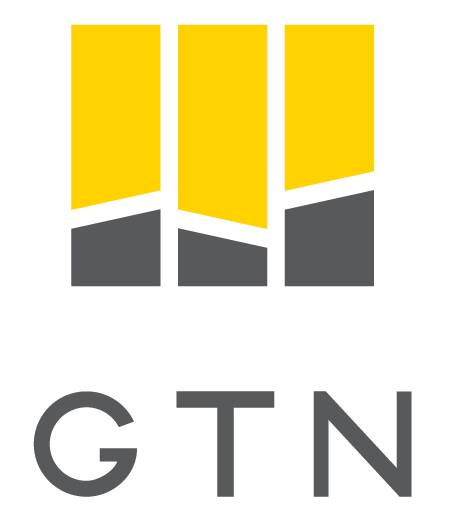
|
Geothermie Neubrandenburg GmbH (GTN) seated in Neubrandenburg/NE Germany is an internationally active planning office of engineers and geologists. The business activities cover the entire spectrum of geotechnical and engineering solutions to geothermal energy supply problems. The know-how acquired with the foundation by Management-Buy-Out (MBO) in 1991 has been extended and developed systematically ever since. GTN can rely on the experience of our experts acquired in more than 20 years of work in the assessment, development and utilisation of geothermal potentials. There are referential projects in Germany for almost all developed and offered technologies. Along with the headquarters in Neubrandenburg, Geothermie Neubrandenburg GmbH has branch offices in Berlin, Unterhaching near Munich and Santiago de Chile. |
|---|---|
| Tasks |
|
| Key Personnel | Dr. Markus Wolfgramm |
| Contact | Geothermie Neubrandenburg GmbH (GTN) |
| Website |
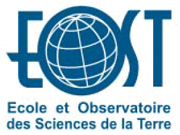
|
Ecole et Observatoire des Sciences de la Terre (EOST) – Université de Strasbourg/CNRS is an institution under the supervisory authority of the University of Strasbourg and the CNRS (French National Center for Scientific Research) in charge of education, research, observation in Earth Science and its diffusion. Founded on the 1st January 2009, University of Strasbourg was created by the merge of the three former universities: Louis Pasteur, Marc Bloch and Robert Schuman. European by nature and international by design, the University fundamental training and research goals include forging partnerships with universities on a European and international scale. University of Strasbourg trains 42 000 students and has a staff of 6 000 researchers and professors. More specifically, EOST hosts more than 160 permanent employees among its staff. EOST is responsible for the education in Earth Sciences of nearly 400 students, offering an engineering school diploma as well as a bachelor degree and a master degree. Training is built around theoretical and field courses relying on a strong relationship with research and industry. |
|---|---|
| Tasks |
|
| Key Personnel | Dr. Jean Schmittbuhl |
| Contact | Université de Strasbourg |
| Website |

|
TU Delft is the leading technology university in the Netherlands. Current research into deep geothermal energy at the Department of Geoscience and Engineering includes aspects of geology, geophysics and subsurface flow and mechanics. Geothermal projects profit greatly from the vast expertise and research infrastructure set up for oil and gas research. Moreover, the student initiated Delft Geothermal Project aims at drilling two wells at the TU Delft grounds to contribute to TU Delft’s aim to create a CO2-neutral campus, and to provide a geothermal test ground with possibilities for research and education. |
|---|---|
| Tasks |
|
| Key Personnel | Prof. David Bruhn |
| Contact | Technische Universiteit Delft (TU Delft) |
| Website |

|
NEXGEO is a leading company related geothermal development in Korea and has a specialized field of business including geo-technical engineering, hydro-geological survey, resource development, IT services for geo-technology. NEXGEO is research managing department of the geothermal site Pohang EGS project and will have a plan to extend the geothermal power plant at Pohang. NEXGEO had a success to drill PX-1 well up to more than 4 100 m and will drill two more wells until middle of 2016. |
|---|---|
| Tasks |
|
| Key Personnel | Dr. Woonsang Yoon
|
| Contact | Nexgeo Inc. |
| Website |
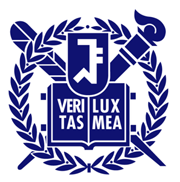
|
SNU is the premier university in Korea covering all areas of science and engineering. SNU will assist the hydraulic stimulation campaign in Pohang for the design and calibration of hydraulic stimulation, and predictive modeling for sustainable utilization. SNU has been directly involved in Pohang EGS project for the past four years, and will have an important role in hydraulic stimulation campaign in Pohang, Korea. |
|---|---|
| Tasks |
|
| Key Personnel | Prof. Ki-Bok Min |
| Contact | Seoul National University (SNU) |
| Website |
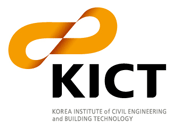
|
Korea Institute of Construction Technology (KICT) is a government-sponsored research institute responsible for establishing government policies and performing R&D projects. |
|---|---|
| Tasks |
|
| Key Personnel | Kwang Yeom Kim |
| Contact | Korea Institute of Civil Engineering and Building Technology (KICT) |
| Website |

|
ECW (Energy Combination Wieringermeer) is the privately held grid company at Agriport A7. Agriport A7 is a large scale location for horticulture and Agri-business started in 2006. The company serves 850 ha of greenhouses and 100 ha of industrial estate. The 2 geothermal doublets cover 20 % of the total energy demand of the area. The wells supply water with a temperature of 90 degrees Celcius and 20 to 25 MW. The greenhouse companies are the customers and owners of ECW. By ECW they together work on a more sustainable and economic energy system for the greenhouses. A key element in this process is an invention from ECW called EWEB which is a ‘smart grid’ solution. |
|---|---|
| Tasks |
|
| Key Personnel | Dr. Robert Kielstra |
| Contact | ECW Geomanagement BV |
| Website |
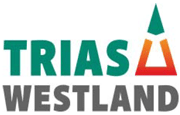
|
Trias Westland B.V. develops and realizes the ‘Trias geothermal project’ and is founded by the initiators Flora Holland (one of the World’s largest flower auctions), HVC (sustainable waste disposal and heat utility) and Westland Infra (gas and electra grid utility). The Triassic Project is developed on the basis of the following objectives:
|
|---|---|
| Tasks |
|
| Key Personnel | Marco van Soerland |
| Contact | Trias Westland BV |
| Website |
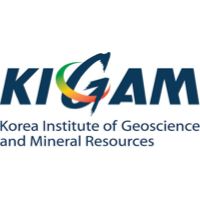
|
Korea Institute of Geoscience and Mineral Resources (KIGAM) is a government-funded research institute. KIGAM is tasked with promoting the sustainable future of Korea by performing leading research in geoscience and mineral resources not only within the country but also throughout the world. |
|---|---|
| Tasks |
|
| Key Personnel | Tae Jong Lee |
| Contact | Korea Institite of Geoscience and Mineral Resource KIGAM |
| Website |
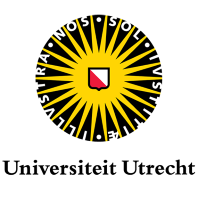
|
Utrecht University is an international research university of the highest quality. This has been demonstrated for many years by its high positions in international rankings such as the Shanghai Ranking and the Times Higher Ranking. With almost 30,000 students, over 6,000 staff, and an annual budget of 765 million euros (2014), UU is one of the largest general research universities in Europe. Utrecht University also hosts the largest academic institute for geosciences in the Netherlands. UU will participate in this project through the Tectonics Group of the Department of Earth Sciences. The UU tectonics group is widely recognized as world leader in sedimentary basin research. In addition, the tectonics group has a coordinating role in various (inter)national solid-earth research programs, including TOPO-EUROPE and the European Earth Plate Observing System (EPOS) research infrastructure, and is member of the Joint Programme on Geothermal Energy in the European Energy ResearchAlliance (EERA), harnessing research power of over 20 leading research institutes in Europe. The tectonics group has developed various coupled numerical, kinematic, and analogue approaches for in depth understanding of lithosphere, crustal and sedimentary scale coupled processes on geological timescales, relevant for exploration and production of geothermal fields. These provide in depth understanding of prevailing stress, temperature and tectonic fabric, which is valuable for resource assessment in the exploration phase and provides critical boundary conditions for reservoir development. |
|---|---|
| Tasks |
|
| Key Personnel | Prof. Jan Diederik van Wees, Prof. Christopher Spiers, Dr Peter Fokker, Dr Ernst Willinshofer, Dr Damien Bonté, Dr Fred Beekman |
| Contact | Utrecht University |
| Website |



